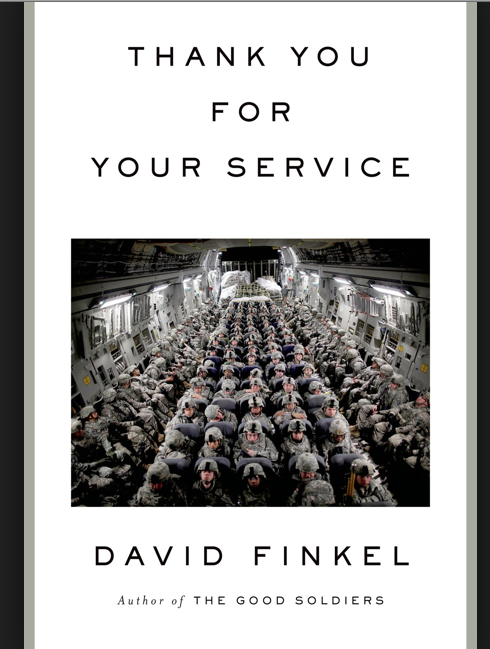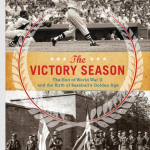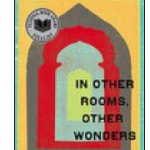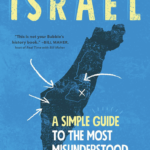Thank You For Your Service by David Finkel
 Thank You For Your Service by David Finkel– This is a nonfiction account, which reads more like a novel, of the story what happens to the soldiers who return from Iraq and Afghanistan after being mentally injured in combat. The author David Finkel previously wrote a well-received book, The Good Soldier, about his observations as an embedded war correspondent. Now he closely follows a group of soldiers most of whom know each other as they came home to their families, some with physical injuries but all with post traumatic stress disorder (PTSD). He writes in the third person and there is no trace of the author’s actual presence although it is like he is a fly on the wall, reporting dialogue in their homes, bedrooms, etc. and in the various treatment programs, which attempt to rehabilitate them. The book takes us back to their combat experiences in foreign countries as well as to their battles with their spouses and with their demons. This is a close up view that can get you inside the head of these men and their spouses. It is as if you were the trusted therapist who was being told all. In fact, clinicians in training or those wanting to get experience with this population of people, psychologically impaired by war would certainly benefit by reading this book. There was clear insight into the thinking of all the subjects but there was no simple answer how to treat them or how they can live with the sequelae of this war experience.
Thank You For Your Service by David Finkel– This is a nonfiction account, which reads more like a novel, of the story what happens to the soldiers who return from Iraq and Afghanistan after being mentally injured in combat. The author David Finkel previously wrote a well-received book, The Good Soldier, about his observations as an embedded war correspondent. Now he closely follows a group of soldiers most of whom know each other as they came home to their families, some with physical injuries but all with post traumatic stress disorder (PTSD). He writes in the third person and there is no trace of the author’s actual presence although it is like he is a fly on the wall, reporting dialogue in their homes, bedrooms, etc. and in the various treatment programs, which attempt to rehabilitate them. The book takes us back to their combat experiences in foreign countries as well as to their battles with their spouses and with their demons. This is a close up view that can get you inside the head of these men and their spouses. It is as if you were the trusted therapist who was being told all. In fact, clinicians in training or those wanting to get experience with this population of people, psychologically impaired by war would certainly benefit by reading this book. There was clear insight into the thinking of all the subjects but there was no simple answer how to treat them or how they can live with the sequelae of this war experience.
The known connection between TBI ((Traumatic Brain Injury) and PTSD is repeatedly demonstrated although it is not invariable. The soldiers bring back tremendous guilt for what they have seen and done which is not easily alleviated by a rational analysis. Seeing buddies maimed and violently killed in a split second, no matter how conscientiously they tried to hold their fellow soldier’s body together while waiting for a medic or intellectually knowing they had no realistic way to avoid these events does very little to mitigate their guilt. One soldier was faced with an enemy firing a deadly weapon at him while holding a 3-year-old child in his arms. It was a self-preservation act to fire his own weapon and kill his enemy and the child but nevertheless the guilt continues to haunt him. It should not be surprising that the families of the wounded warriors also experience emotional damage. This pain is not only psychological but also physical in the form of what at times is severe domestic violence. There is also the suggestion that the participants in today’s volunteer army may be more likely to have had some emotional instability prior to enlisting. There are no statistics given to support this nor does this diminish the responsibility that we have to the all the heroes whom we meet in this book.
The undercurrent of this book is the subject of suicide. Such thoughts lurk in a large number of these injured soldiers and there are numerous examples of serious contemplations to end their own life with some cases where they carried out this deed. I well remember following the rising statistics several years ago as the number of suicides among active duty soldiers and veterans gradually increased until they were more than the civilian population and then ultimately exceeded the number of combat deaths. This book illustrates the stories behind these numbers by not only recounting the suicidal thoughts and near acting out of them by some of the subjects of the book but also by describing a special conference call held on a daily basis. This was the meeting run by a high ranking General linked to military bases around the world during which every suicide committed by a soldier was reviewed. At one point this was more than 22/day. The goal was the valiant but obviously unsuccessful effort to extract suicide prevention measures from this deadly experience to significantly eliminate this deadly situation.. Although not mentioned in this book, this was during a time that many people including this writer were advocating that families of soldiers who suicide should receive an official letter of condolence by the US President which is done for every fallen soldier and which was not happening at that time.
I came away away from this book hoping that the emotional toll that warriors of war will pay be factored in along with the loss of life and limb, when anyone on this planet contemplates actions that will lead to armed hostilities.













